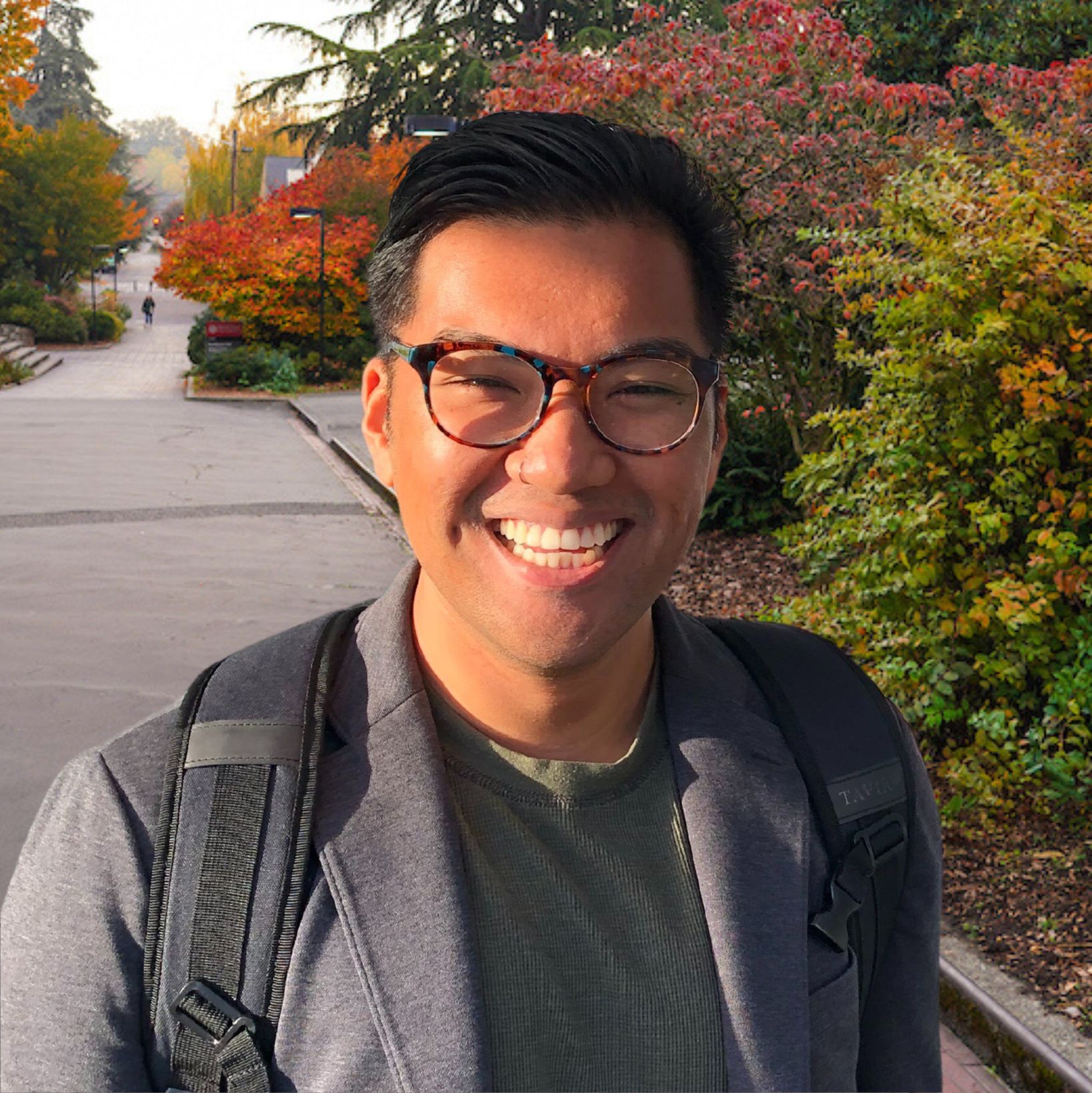Recognizing and Eliminating disparities in Addiction through Culturally informed Healthcare (REACH) is a project funded by the Substance Abuse and Mental Health Services Administration (SAMHSA) to the American Academy of Addiction Psychiatry (AAAP) to provide funding to support the cultivation and fostering of minorities as leaders and clinicians in addictions.
MarkJason Cabudol is a doctoral student in the Adult-Gerontology Nurse Practitioner program at Seattle University who said he is “determined to learn how to provide culturally responsive care for underrepresented minority people who inject drugs (PWID) with substance use disorder (SUD) and to meet the unique needs and experiences of racial and ethnic minoritized PWID by providing evidence based, culturally informed care.”
As a member of the 2023-2024 class of REACH Scholars, Cabudol will participate in a 1-year educational program beginning July 2023, which he hopes will provide him with clinical education, collaboration, and mentorship to propel him toward his career goals. He took time to talk to us about his experiences and how they led him to pursue his DNP at SU.
Q. Tell us a little about yourself and your experiences.
I accepted a research assistant position on a randomized controlled clinical trial which aimed to understand appropriate Hepatitis C Virus treatment options among people who inject drugs (PWID) in Seattle, Washington. I recall working with one special patient that helped me become aware of her experiences in the health care setting. The patient presented in distress for our scheduled research visit and shared how she felt judged and humiliated by the clinical and administrative staff for the injection track marks on her arms. She contemplated whether to return to the clinic in the future because she was embarrassed about her drug use. I reflectively listened to her concerns and provided my undivided attention thus giving her the respect she deserved. I engaged in meaningful discourse to better understand how stigma in the health care setting dynamically and negatively affected her health outcomes. I reflected on the genuine joy and fulfillment I experienced throughout the study when witnessing her momentous upward trend in health behaviors and attitudes towards her health, but most importantly, how our trust and level of comfort with each other bloomed over time. My overall experience working on this study taught me how powerfully stigma can exacerbate health disparities among PWID. This illuminated my desire and dedication to help medically underserved and underrepresented communities.
Q. What drew you to pursue your DNP at SU?
My involvement in various clinical research studies provided me invaluable opportunities to work collaboratively in interprofessional teams to discover, design, and deliver high-quality medical innovations towards improving patient outcomes. These teams included highly skilled nurse practitioners which I had the pleasure of working and learning alongside. The accumulation of my clinical research experiences and collaboration with nurse practitioners cemented my decision to pursue a nursing career in aim of delivering compassionate and holistic patient-centered care to the most vulnerable populations in medically underserved communities. I chose Seattle University’s Advanced Practice Nursing Immersion to Doctor of Nursing Practice program because the comprehensive curriculum and institutional values closely align with my goals of pursuing advanced nursing practice and will provide me the skills, knowledge, and attitude to make a positive impact in health care.
Q. What do you look forward to most about the clinical experiences you will gain as a REACH Scholar?
The Recognizing and Eliminating disparities in Addiction through Culturally informed Healthcare (REACH) program will provide me the clinical education, interprofessional collaboration, and mentorship to reach my goal of improving healthcare for PWID with substance use disorder (SUD). Participating in the REACH program will build upon my clinical and research skillset and will propel me towards reaching my career goals. As a rising clinician, I am determined to learn from leading experts in addiction medicine how to provide culturally responsive care for underrepresented minority PWID with SUD. I hope to meet the unique needs and experiences of racial and ethnic minoritized PWID by providing evidence based, culturally informed care. With the aim of improving health outcomes, I am driven to conduct research that identifies and dismantles health care access barriers and improves health care service utilization experiences for PWID.
Q. What are your plans/career goals after you graduate?
I gained strong interpersonal, organizational, and analytic skills from my clinical research experiences that enable me to convey research findings and evidence-based recommendations to various audiences from local community stakeholder meetings to international academic conferences. However, the biggest takeaways I gained from my involvement in research are practicing resilience, flexibility, and empathy. I see the great value of the symbiotic relationship between research and clinical practice as new sociocultural, political, and medical challenges continue to emerge for PWID with SUD. I plan to deliver prevention, evaluation, diagnosis, and treatment services for racial and ethnic minoritized patients with SUD by effectively leading and collaborating in interprofessional teams. I seek to build mutually beneficial and respectful relationships with patients diagnosed with SUD for the advancement of health in vulnerable and diverse communities. I aim to also provide mentorship and training to the next generation of aspiring addiction medicine specialists. I am committed to transforming health care for PWID through research and clinical practice as a doctorally prepared adult gerontology primary care nurse practitioner.

